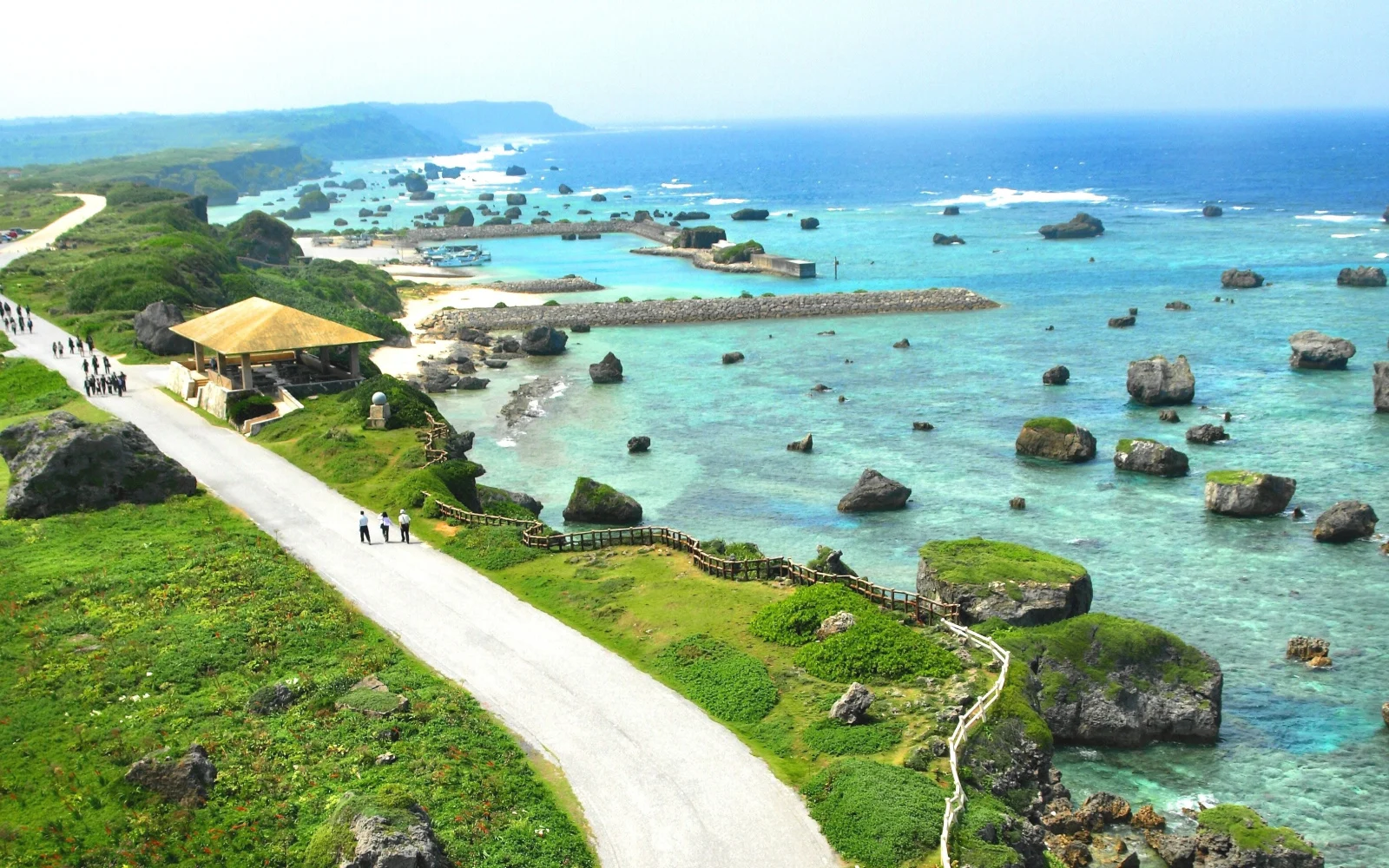A remote island prefecture of Japan, with a culture distinct from the Japanese mainland, Okinawa is a fascinating place to visit. Annually, the island attracts about 10 million tourists, both domestic and foreign.
The city is a popular vacation destination thanks to its stunning natural beauty. Visitors can enjoy beautiful sandy beaches and swim in warm, subtropical waters (a vast difference from the rest of chilly Japan).
Okinawa has an independent culture and history since it only became part of Japan in 1879, so you can see unique historic artifacts such as the colorful Shuri Castle and Okinawa World, a theme park dedicated to Okinawan culture.
Many people associate the city with World War Two, as fierce battles were fought on the island. Today, the somber Okinawa Peace Memorial Park commemorates the many dead from all sides.
You may be wondering, what about Okinawa’s safety in the present day? This guide can help you figure out if this region is safe to visit or not.
Is Okinawa Safe to Visit in 2025?
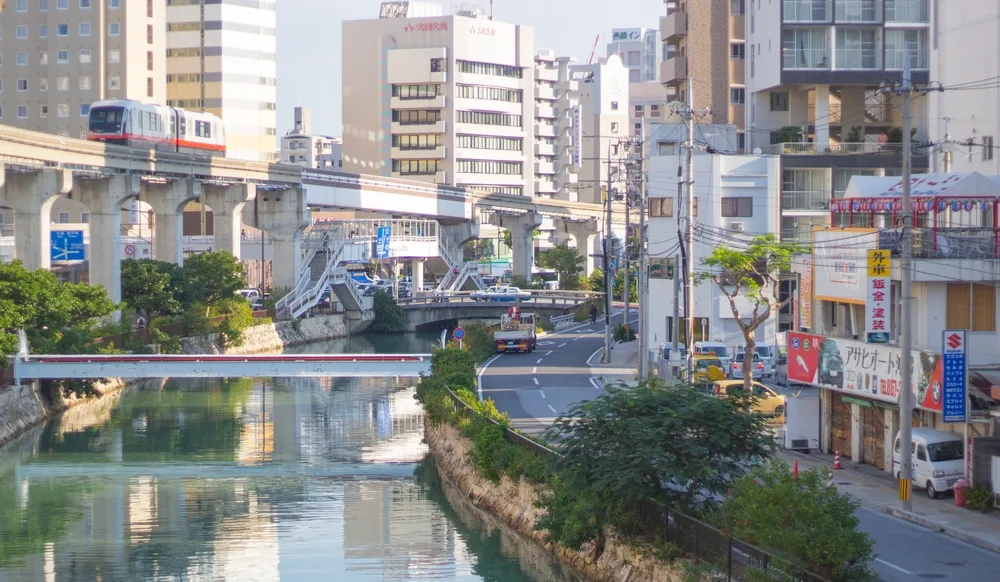
Okinawa, Japan – October 14, 2015: Morning landscape of the city of Okinawa./Mei Yi/Shutterstock
Like all of the rest of Japan, Okinawa is very safe to visit. The crime rate is very low — lower than in many other parts of Japan. Few other dangers are present.
Before talking about Okinawa specifically, it’s a good idea to look at the country of Japan as a whole. Knowing the safety of the country you are visiting can help you figure out if you need to think about specific regions.
Japan is one of the safest countries in the world to visit, so it makes sense that one of its prefectures, Okinawa, would also be very safe. Most countries, such as Canada, just tell their citizens to take normal safety precautions and put Japan under a Level One travel advisory, the lowest possible level.
Any problems you run into in Japan tend to be minor, such as:
- Pickpocketing
- Bag snatching
- Tourist scams
Okinawa has a lower crime rate than other popular tourist destinations in Japan, such as Tokyo. Although these problems can occur as well, they are rare.
One thing to keep in mind is that Okinawa still hosts a few U.S. military bases, which make up 15% of the land area on the main island of Okinawa. These areas are highly restricted, and you should be careful not to trespass.
Many Okinawans are frustrated with the continued U.S. military presence on the island, and even the prefectural government emphasizes on its website that it never formally agreed to host the military bases.
There are frequent protests on the island calling for the closure of the bases. While most of these protests are peaceful, it’s a good idea to stay away from any protests while you are abroad since you are not familiar with local contexts.
Natural disasters and risks associated with going out in nature are a common problem in Okinawa.
It is Japan’s southernmost province, making it extra vulnerable to typhoons. In the summer of 2023, Typhoon Khanun devastated the region.
Typhoon season lasts from June to November, which is also the most popular time to visit, especially if you want to spend time on the beach. If you want to visit during the summer, keep the possibility of typhoons in mind.
Check the forecast before you go and follow the typhoon warning systems. Many countries will issue warnings to citizens planning a trip to Japan if a typhoon is predicted.
Natural activities, such as swimming and hiking, are some of the most popular things to do when traveling to Okinawa.
However, any time you go out in nature, there are some risks associated. The official tourism site of the prefecture has safety tips for visitors looking to go hiking, diving or fishing.
These include:
- Be careful of dangerous local wildlife, such as venomous habu pit vipers and jellyfish.
- Only swim in designated swimming areas and don’t swim over coral reefs at low tide.
- Don’t swim out of designated swimming areas or past the reefs to avoid getting caught up in dangerous undercurrents.
- Only snorkel and dive if you are confident in your skills and are feeling well enough.
As long as you take the right precautions, Okinawa is a very safe place to visit.
Crime in Okinawa
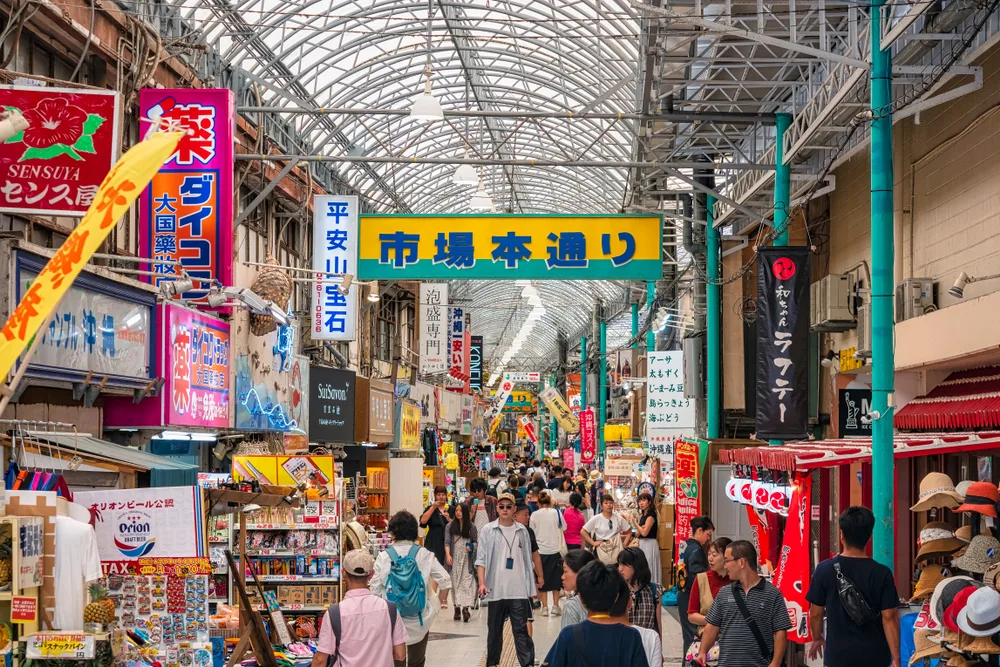
OKINAWA, JAPAN – SEP 1, 2019 : Makishi Market local shop product famous Shopping street in Naha crowd people. Okinawa japan/VTT Studio/Shutterstock
In the absence of other major dangers, crime in Okinawa is the main cause of concern for potential tourists.
The good news is that the crime rate is low. According to Numbeo, the crime index score for Okinawa is 13.31 out of 100, which is a very low value.
Although people report some concern about rising crime in the past few years, they still report feeling very safe in Okinawa.
The crimes people worry about the most are vandalism, theft, drug abuse, verbal insults, and vehicle break-ins. People are also concerned about corruption and bribery (there is often tension between Okinawa locals, some of whom identify as indigenous Ryukyu people, and officials who are of majority Japanese ancestry.)
The good news is that most crime incidents in Okinawa are petty in nature. Petty thefts such as pickpocketing and minor conflicts occur everywhere, especially in places that attract lots of tourists and where crowds can provide cover for these crimes. More serious crimes are rare.
Many locals are concerned about crimes committed by members of the U.S. military. According to some statistics, U.S. military members committed about 6,000 crimes between 1972 and 2019 and were responsible for about 4,000 vehicle fatalities in the same period.
On the other hand, U.S. officials argue that the crime rate among American personnel is lower than among surrounding local islanders. The issue of crime is a tense one for locals and U.S. military personnel, but it is one that is unlikely to affect you as a visitor.
Petty Theft
As is the case in many places in the world, petty theft is the most common problem in Okinawa. This crime affects visitors and tourists alike. Although petty theft is inconvenient and annoying, it is luckily not life-threatening.
The most common type of petty theft is pickpocketing. Thieves prefer to use discrete methods of theft that don’t involve confrontation and just use the distraction of tourists to their advantage.
Other forms of theft also occur in Okinawa, such as bag snatching, scamming, and theft from vehicles. In one particularly bizarre incident, an Okinawan man was accused of planning to steal valuable Pokémon cards.
Pickpockets and other thieves often operate around crowded areas and popular tourist destinations. Be careful around transportation hubs, such as bus stations, crowded parts of Naha City such as Sakaemachi market, and popular tourist areas such as the American Village entertainment district.
Thefts tend to increase in the summer, when more and more people visit Okinawa and crowds increase.
While you don’t need to be constantly vigilant since theft rates are very low, basic precautions are a good idea wherever you are in the world. Never leave your things unattended, for example when you are swimming on the beach or in your hotel lobby.
Even in a place with a low crime rate, it’s not a good idea to advertise the fact that nobody is watching your purse.
When you are walking around crowded areas of the city, especially in popular nightlife areas, make sure that your valuables are secure. Put them somewhere where you know you’ll notice if they go missing, such as your inner jacket pocket, a zipped compartment of your bag, or your front pants pocket.
You want to make it as hard as possible for someone to slip your phone or wallet away without you noticing.
Thieves will target people that seem like lucrative marks or that seem as if they can’t defend themselves, so try not to single yourself out as a potential target. That means not flashing lots of cash or getting too inebriated when out in public.
As long as you take common sense measures, you can avoid being the victim of theft in Okinawa.
Sexual Harassment
Many travel advisories for Japan mention the risk of sexual harassment. The Australian government warns that crimes occur in clubs and bars, and victims can experience fraud, harassment, and even assault.
The risk for female travelers in Okinawa is much lower than in other parts of Japan, such as Tokyo’s popular nightlife areas, but the risk is still present.
Take precautions to protect yourself, such as not drinking too much, always watching your drinks, and avoiding bars and clubs that have touts as they often have a reputation for shady practices.
When walking at night as a female traveler, you should avoid poorly lit areas and side streets with few other people. Although Okinawa is generally a very safe place, these parts are risky at night anywhere in the world.
There have been cases before of U.S. military members harassing and assaulting locals, which has caused a lot of frustration and tension on the island.
Avoiding Bad Areas

Okinawa, Japan, October 2019 – Whale shark in Okinawa Churaumi Aquarium./Distinctive Shots/Shutterstock
There are no dangerous parts of Okinawa since the region is so safe. You want to avoid U.S. military bases, not because they are dangerous but because they are restricted to civilians and punishments for trespassing are severe.
Be careful when exploring Okinawa’s nature, especially more remote areas, as you may encounter venomous animals such as the pit viper.
In terms of areas that you need to avoid due to crime, there are no areas of that sort in Okinawa.
Things to Consider
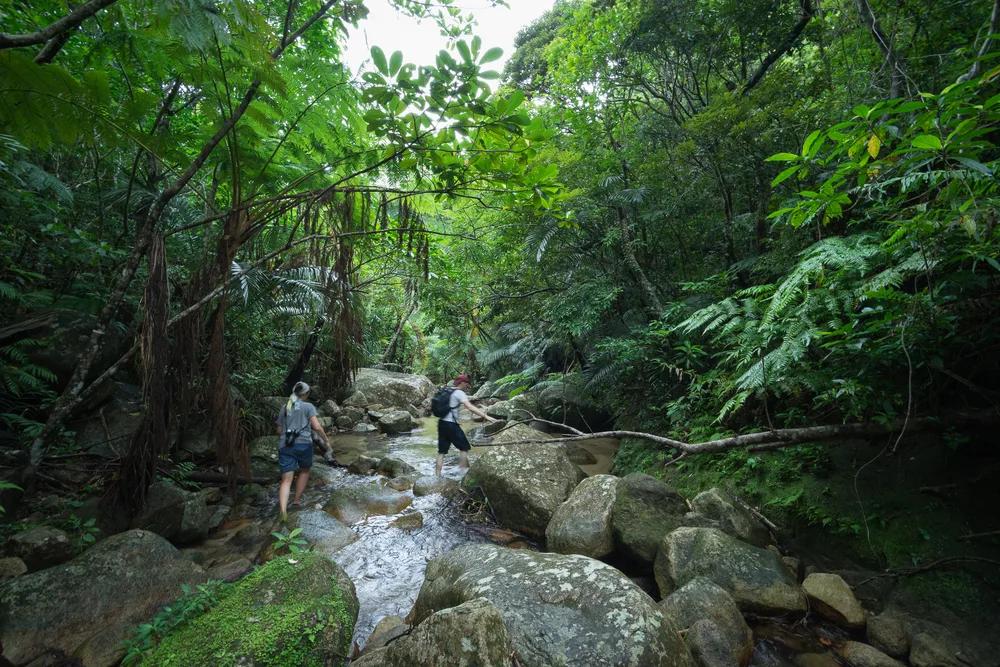
tororo reaction/Shutterstock
Here are a few additional tips for staying safe in Okinawa:
- Avoid mentioning the U.S. bases to locals as it is a sensitive topic. While many welcome the American presence or are indifferent, others want the bases to leave their island. Wait for local friends to bring it up instead of bringing it up yourself as Japanese culture doesn’t support such intense conversations between new acquaintances.
- When hiking, be careful of snakes. The most dangerous are the three species of habu pit vipers. Before hiking, learn how to identify these snakes and move away if you see them. If you are bitten, gently bandage the area and seek help immediately.
- Be careful of the sun! Okinawa’s climate is subtropical, which means that it can get very hot in the summer. Make sure that you apply plenty of sunscreen, drink lots of fluids, and spend time in the shade during the hottest part of the day.
Frequently Asked Questions
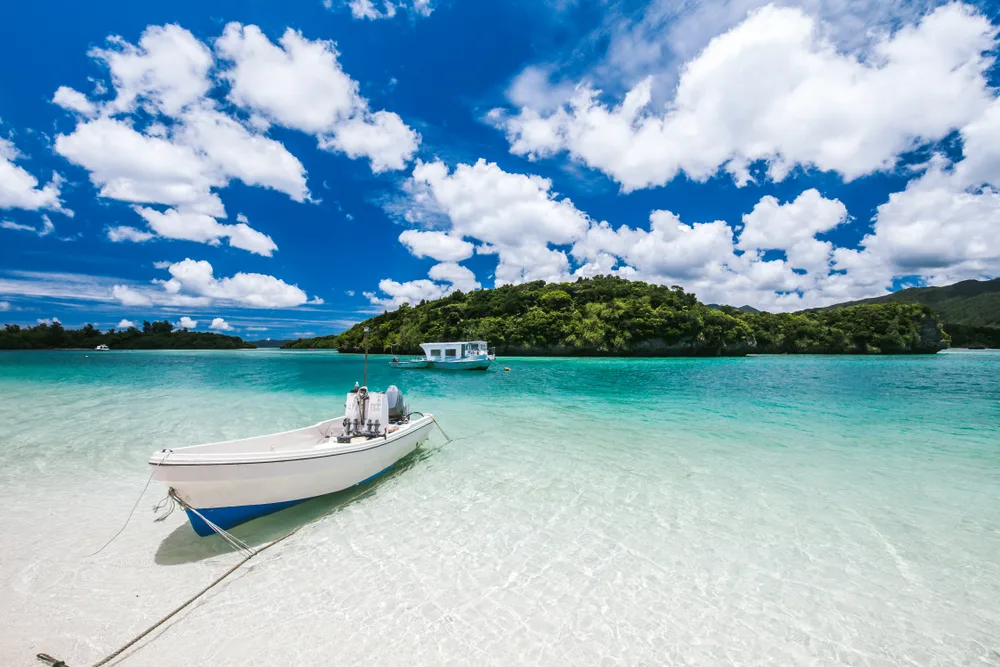
Jihun Sim/Shutterstock
Here are some other questions that you may want to ask before visiting Okinawa:
Is Okinawa good for tourists?
Yes, Okinawa is good for tourists. In fact, it is one of the most popular tourist destinations in Japan thanks to its gorgeous weather, great tourist infrastructure, and safety.
Are the beaches in Okinawa safe?
The beaches in Okinawa are safe, but the coastal waters are not always safe. As long as you stick to designated swimming areas and follow the advice of lifeguards, you should be safe. The waters outside of designated beaches or past the reef have dangerous currents and tides.
Do people speak English in Okinawa?
The main language in Okinawa is Japanese, and some elderly people still speak the local Okinawan language. Many younger people, especially those working in the tourist industry, speak English.
Is it worth going to Okinawa?
It absolutely is worth going to Okinawa, especially if you are a lover of beaches and beautiful scenery. Okinawa is also very different from mainland Japan and offers an interesting contrast.
Can you drink alcohol in Okinawa?
Yes, you can drink alcohol in Okinawa! Alcohol is legal here like in the rest of Japan. Okinawa also has a long tradition of brewing local alcohol, and you may want to try some local drinks while you are here.
So, Is Okinawa Safe to Visit?
If you want to enjoy beaches and a unique culture while in Japan, you are in luck as Okinawa is a great place to visit. The island prefecture is one of the most peaceful in Japan thanks to its low crime rate and friendly atmosphere.
So, with so much to see and do, what are you waiting for — book your trip today and experience for yourself all that Okinawa has to offer. Happy travels!



